How one O-level led to a multi-million pound toy empire
- Published
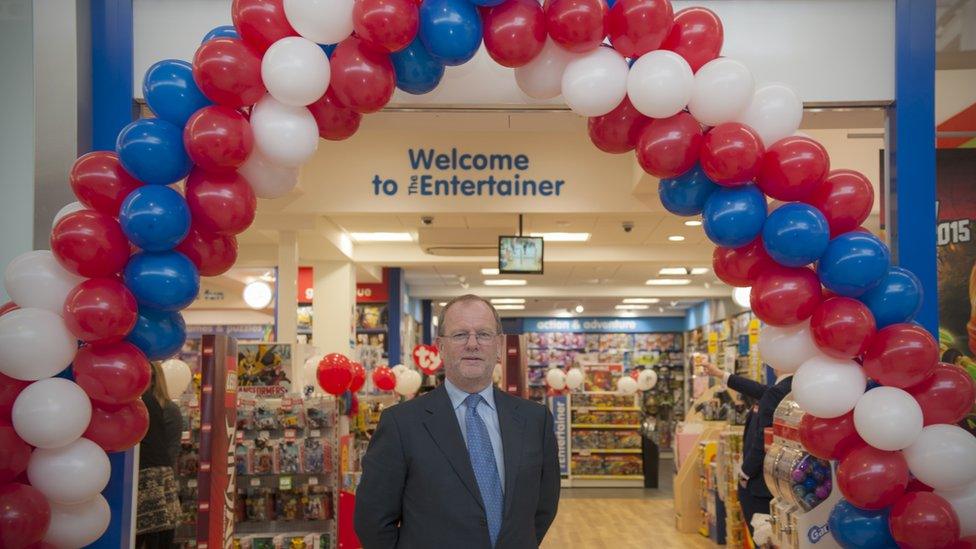
The Entertainer gives 10% of its profits to charity, mainly child-related ones. "We earn our money from family and children and therefore we give back to family and children," he says.
"Numbers are my thing", says Gary Grant, the founder of toy shop chain The Entertainer.
He doesn't really need to say it. In an hour in his company, the conversation is peppered with numbers: How many shillings make a pound, how old he was when something important happened in his life and the dates of historic occasions. When he can't remember a number, he keeps interrupting himself, returning back to the original topic, until he does.
To a non-maths person it's exhausting, but it's an insight into how Mr Grant's mind works. Dyslexic, he wasn't interested in school at all, but says maths was "easy peasy". He failed his 11-plus exam and hence went to what he calls the "failures' school", which he left at 16 with just one qualification - O-level maths.
Now he looks at spreadsheets and can tell instantly if something's wrong, adds up without using a calculator and to this day, despite having a finance director, checks the weekly cash flow, signs every cheque and approves, or not, all outgoings.
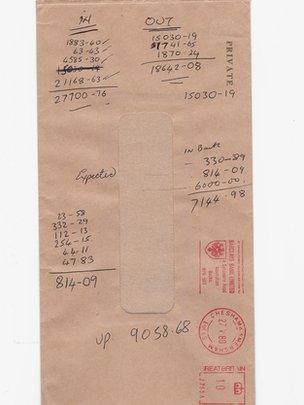
Gary Grant's calculations on the front of an envelope: He did the cash flow like this every week in the early days
His forensic attention to numbers has paid off. The Entertainer - named so they could switch sector if the toy idea failed - opened its first shop in 1981. It now has 110 UK stores plus four overseas and made a £7.8m pre-tax profit for the year to the end of January, up almost a third on the previous year, on sales just shy of £130m.
Its success comes in spite of what appears to be a determinedly non-commercial approach to running a business. Mr Grant became a Christian in 1991, a decade after he opened his first shop. His faith was so strong he almost quit to become a missionary, but instead decided to make the business compatible with his beliefs.
As a result, the shop never opens on Sunday, doesn't stock Halloween goods or some of the most popular toy ranges including Harry Potter related merchandise and realistic weaponry and gives 10% of the chain's profits to charity. "We just want to be comfortable with what we're selling," he says.
Before his conversion, when a religious customer told him he was "encouraging children to play with darkness", and that if he stopped "the Lord will repay your business in other ways", he admits he thought she was "a fruitcake". "I just explained that I bought and sold things and made a profit and that's what being in business was all about".
Now, like her, he says the firm's continuing success is no surprise, noting the Bible states: "Those who honour me I will honour".
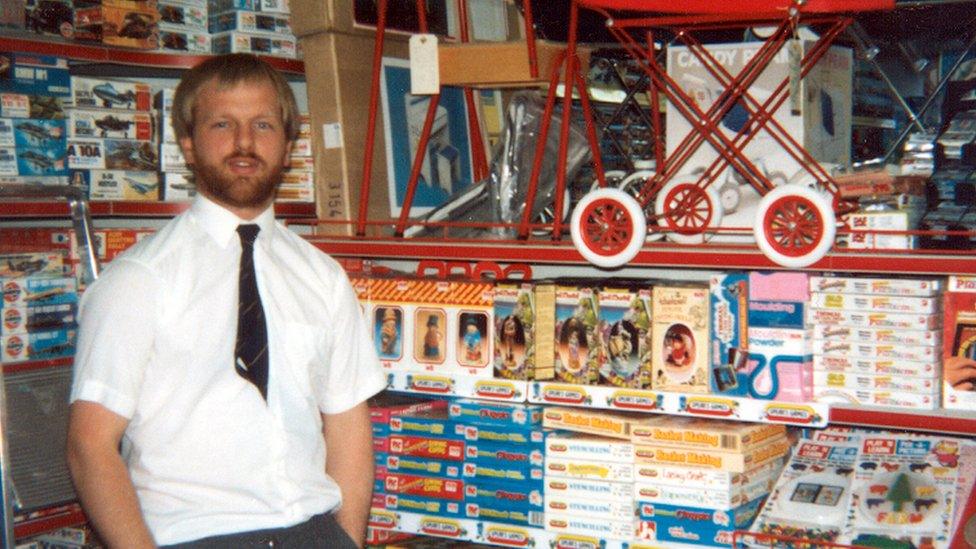
Gary was 23 when he opened his first shop, but says he wasn't daunted. "In life we all have a risk threshold. I don't take on unnecessary risk. But if you want dead certs they don't come your way"
When the firm faced its toughest time, at the height of the 2008 financial crisis, he called in a vicar and took the unusual approach of inviting head office staff to pray with them. He was astonished by how many people - around 30 - turned up. They met weekly for around four months - praying for the staff of collapsed rival Woolworths, for wisdom for the government and their own economic situation. In the end the firm - which at one point looked like it would lose £1m - ended 2008 no worse off than when it started.
"We didn't make any money, we didn't lose any money but we survived," is how he sums it up.
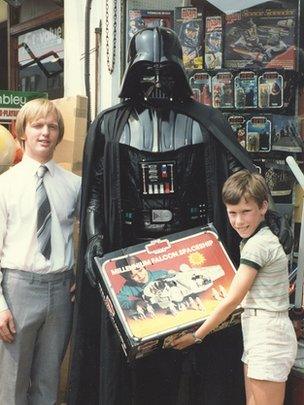
In their first store in Amersham (pictured here), Gary and his wife worked every evening to price stock and replenish the shelves
Surviving is what Mr Grant was good at long before he founded his own business. His parents divorced when he was just three and money was scarce. "If I wanted anything I had to go out and earn it," he says. Whilst still at school, he did paper rounds, collected empty beer bottles and worked on a milk float as well as in a sweet and then a bike shop.
'Money in, money out'
When he left school, he joined the bike shop full time, and it became the local epicentre of the 1970s skateboard boom. When the skateboard market collapsed, he bought the surplus stock to sell privately. Spending all his time on the shop phone talking to prospective customers eventually got him sacked but gave him enough money to start what he planned to be his own bike shop.
Instead, a call from an estate agent mate - who had a toyshop in Amersham on his books - proved fateful. Gary and wife Catherine took it over despite having no knowledge of the sector.
It seemed an ambitious move for the then 23-year-old. But he said life had already taught him that if one job finishes another would come along. "I'm not Del boy but people often call me that," he laughs.
Each week, he added up the shop's income and outgoings on the back of a brown envelope. "Money in, money out that's how you manage cash flow," he says.
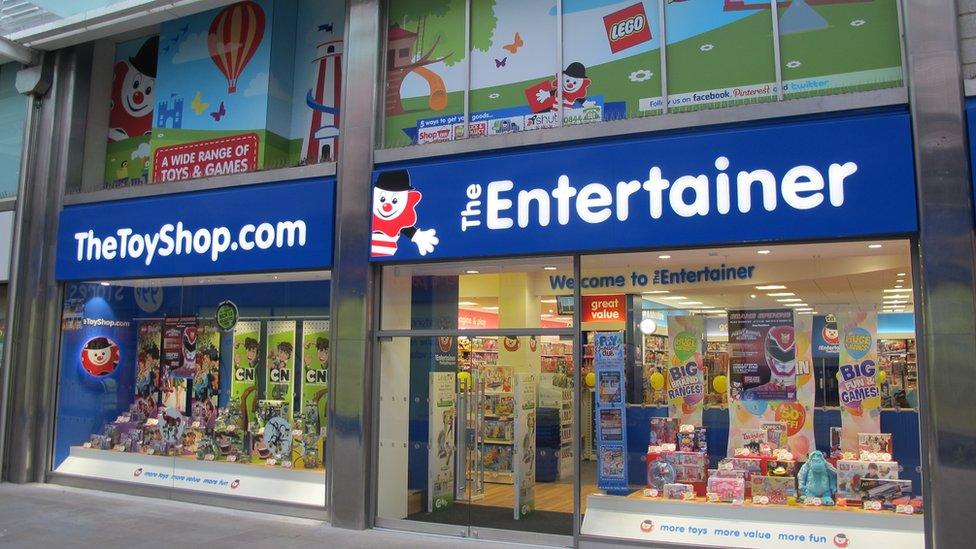
Shops still provide the bulk of the chain's sales - around 80% - with the rest coming from online
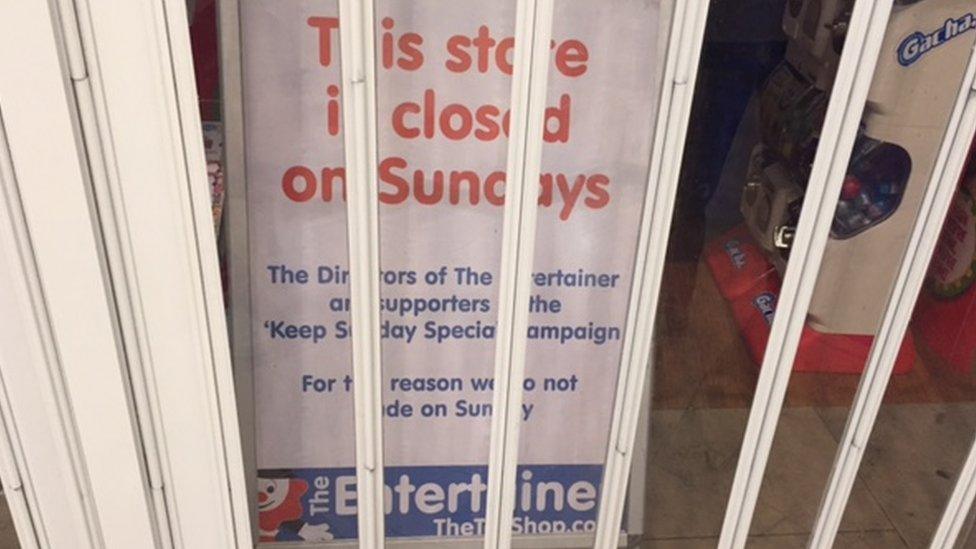
Gary Grant says he values family life and that his staff, no matter what their faith, appreciate not having to work on Sundays
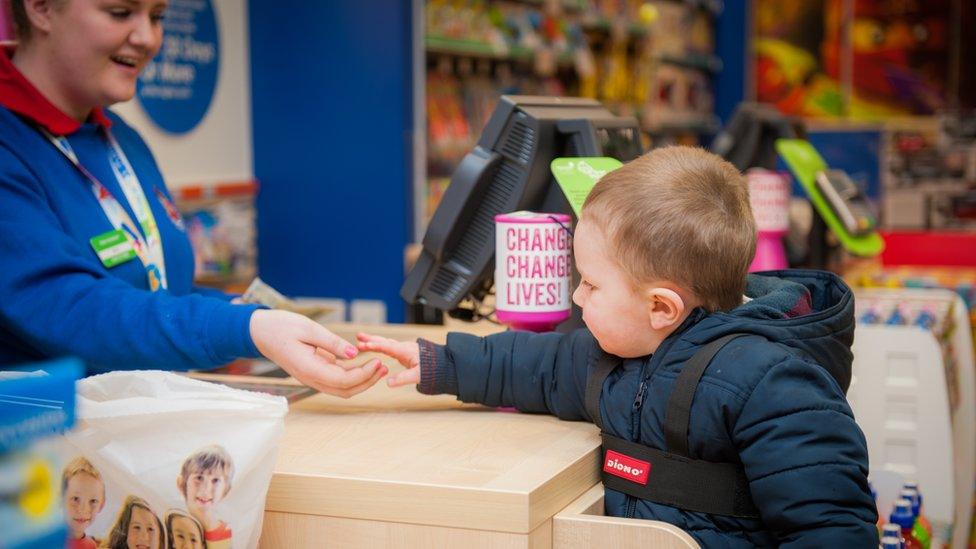
Gary Grant says he went "ballistic" when one of his staff overlooked a child in the queue and served the adult behind instead. Now all shops have step stools to ensure children are seen and can pay for things themselves
Using profit to grow the business was initially slow, but the collapse of then rival Zodiac Toys in 1991 proved a turning point. It enabled The Entertainer to secure its first shopping centre store - normally impossible for such a small retailer - and from thereon expansion increased.
Shops are still its main source of income - providing 80% of sales, with the rest online. It's a split Mr Grant's happy with and he gets angry at the suggestion that some people inevitably use the shops to look at the toys, but then go online to buy them cheaper.
"If you don't value customer service, range, store ambience, advice... then go and buy off Amazon because I'm not going to waste my time," he says. His stance is that the chain offers "outstanding value" but is not necessarily the cheapest. It costs at least £300,000 to open a shop and he says some of that cost has to be factored in.
"It's about getting a balance. We offer value and value isn't just price."
The firm's success - the business is owned wholly between his wife and four children, two of whom work in senior roles alongside him - has bought him plenty of material happiness, but one of the achievements of which he is proudest is that he has given lots of people a chance.
Below board level many senior staff have come up through the company, and not surprisingly you can get a job at the Entertainer without any qualifications at all.
"If I hadn't been given opportunities maybe I wouldn't have had a business this size. I want everybody to have an opportunity," he says.